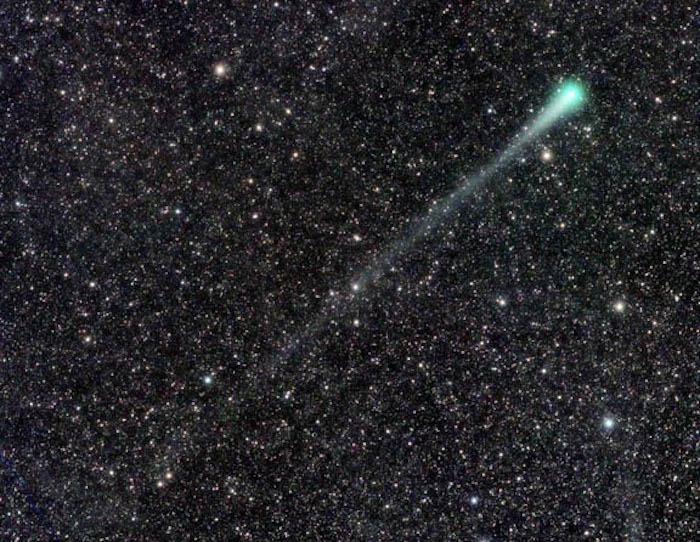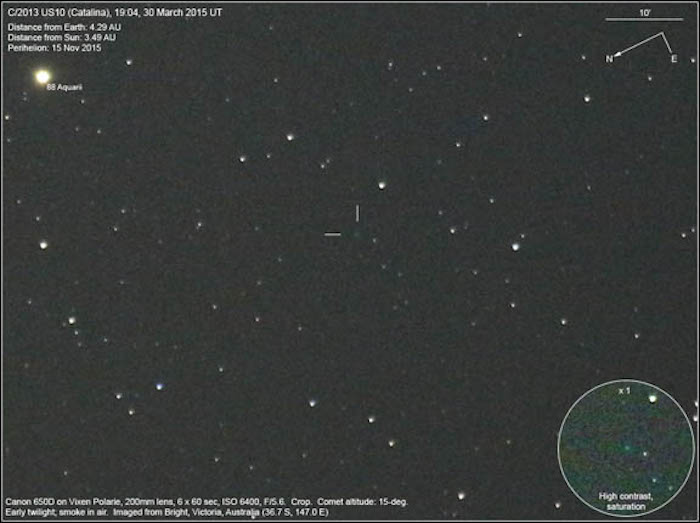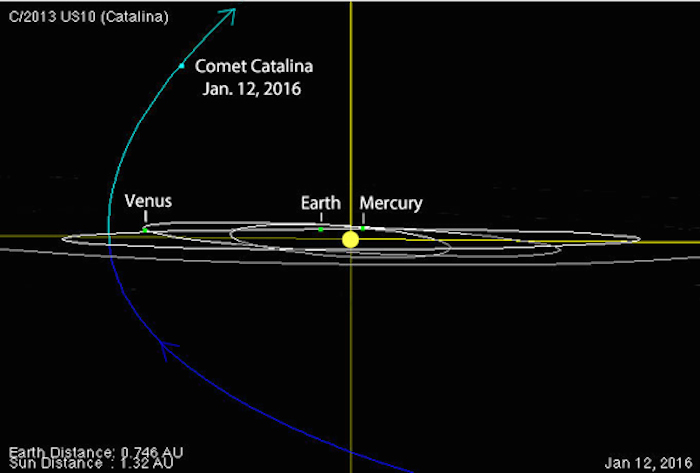.
12.11.2015

Comet C/2013 US10 Catalina on October 1, 2015 shines near 7th magnitude and shows a greenish coma due to emissions from diatomic carbon. The tail stretched 3° across the rich star fields of Centaurus and Lupus at the time.
José J. Chambó
-
Get ready to lose some sleep — Comet C/2013 US10 Catalina will be arriving soon! After making a hairpin turn around the Sun at perihelion on November 15th, the comet will surge into the dawn sky for northern hemisphere skywatchers and put on a great show by month's end. Early on, binoculars will show the comet's small, bright coma with a whisper of a tail. Naked-eye sightings may be possible by mid-December.
.

Back on March 30th, when the comet first became accessible to amateur astronomers, it was a 13th-magnitude smudge.
Rob Kaufman
-
There's been a lot of buzz about the comet, since many of us expected Catalina to depart the solar glare pumped up to magnitude +3, making it the brightest expected fuzzball of the year. Maybe it will still. But in September, the comet's rate of brightening began to flag. Revised estimates now call for it to top out between magnitude +5 and +6 by year's end.
From late March through mid-October, Catalina's path confined its visibility to southern eyes only. Chris Wyatt of New South Wales, Australia, made one of the last visual observations on October 16th before the comet disappeared in the solar glare. Using 10x70 binoculars, he estimated a magnitude of +7 with a 7′-wide, well-condensed, greenish coma, and short ion tail pointing southeast.
Through his 10-inch Dobsonian, the coma expanded to 8.2′ with a longer 35′ tail. Wyatt noted that Catalina responded well to a Swan Band filter, a narrow bandpass filter tuned to oxygen and carbon emissions that enhances the view of gassy (vs. dusty) comets. With the filter in place he saw significant brightening in the inner coma.
.

C/2013 US10 (Catalina) is an Oort Cloud comet with a steeply incl
5285 Views
